Delegates on Table 6 at the opening plenary are invited to record their thoughts here.
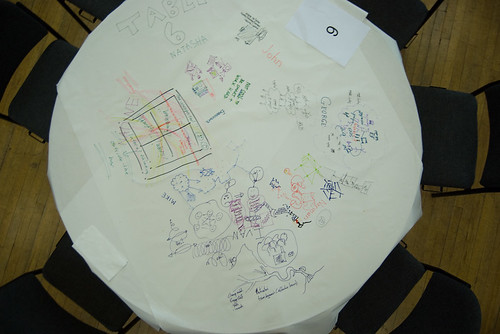
IMAGES: Visualising inquiry-based learning…
SPIRAL
Ivan saw a spiral of learning which neither got larger or smaller…. Was that life going in circles we wondered if the learning or research process involved knowing more and more about less and less (smaller and smaller spirals) or bigger and bigger spirals as knowledge unfolded.
TRANSPARENCY
Transparency was something which Nadine thought very important – explaining what was required, making unknown ‘territory’ less scary. For her IBL conjures up ‘facilitation’.
JCB/DIGGER
Ivan drew a JCB/Digger which to him represented construction (though to John ripping apart).
DENSE FOREST
Dense forest and seeing the wood for the trees was another image.
RIVERS
Rivers feeding in to a sea of knowledge. Travelling a river you might not know where the river is leading to – streams coming together, deltas splitting larger flows. Some of the flows are under the surface and not immediately apparent.
SCAFFOLDING
We don’t like this metaphor. It is all put up before-hand. It is over-engineered, it costs a lot.
GYM
A ‘spotter’ in a gym context can be someone who gives you just the amount of support you need to help you and push you in the gym – not too much, unobtrusive, a trusting relationship.
You need to push your comfort-zone. But students often don’t like going into uncharted territory. They need to be pushed and supported. This is very different to the ‘scaffolding’ metaphor which we agreed we do not like.
Motivation is one of the most important parts of IBL – at the back-end of every lesson George spends 5-10 minutes motivating the students to go away and conduct some inquiries before returning the following week to feed in to the next session.
QUESTIONS
QUESTION
How do you overcome the idea that it is ‘not cool’ to be smart? This is a problem in schools carried over into HE. How do we address this?
QUESTION
How do we motivate students to make enquiries?
QUESTION
How can I get staff motivated to think about other ways of teaching and learning? Many will staff will go back into their comfort zone and teach the way that they were taught. Those round the table thought that it worked better getting someone in to motivate staff from another institution, and that the prophet in his/her own land never seemed to have quite the same impact.
QUESTION
How do you stop staff ‘back sliding’? They may create some good IBL sessions, but may then slip back into ‘old ways’ after the initial investment ends, despite some evidence that it improves results. IBL is a skill which needs to be learnt.
Managing change is a challenge all of us face. As in all cases there will be the inital zealots, early adoptors who need containing and reigning back sometimes, but it is probably rarely worth spendingtoo much resource to motivate the laggards - it just isn't going to happen.
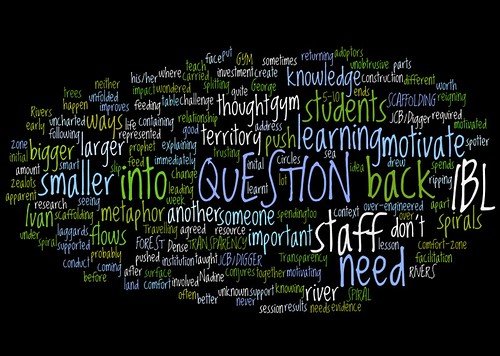
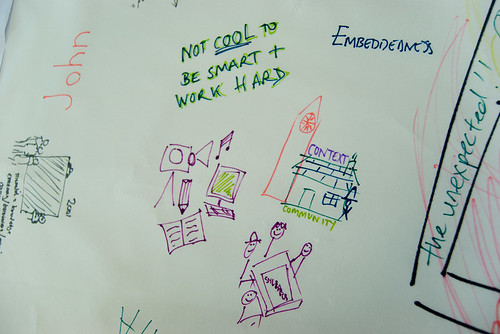
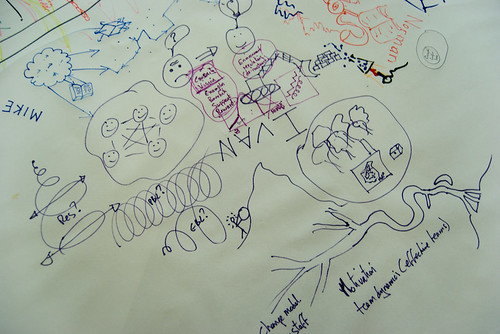
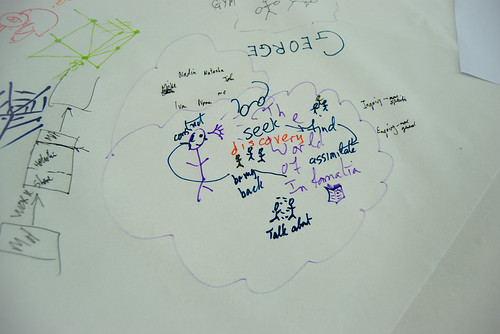

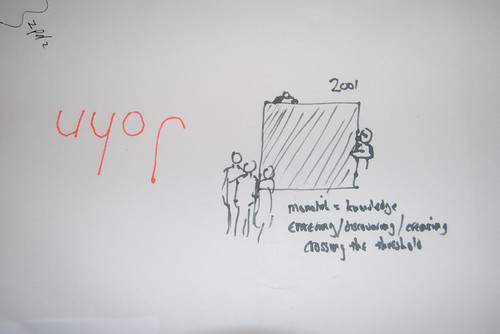
Comments (2)
Natasha Semmens said
at 3:38 pm on Jun 25, 2008
I made a 'Wordle' of our work...view it at:
http://wordle.net/gallery/wrdl/30498/Group_6_LTEA
Joseph Tame said
at 1:01 am on Jun 26, 2008
I put a copy of it on Flickr so we can embed it - a work of Art Natasha!
You don't have permission to comment on this page.